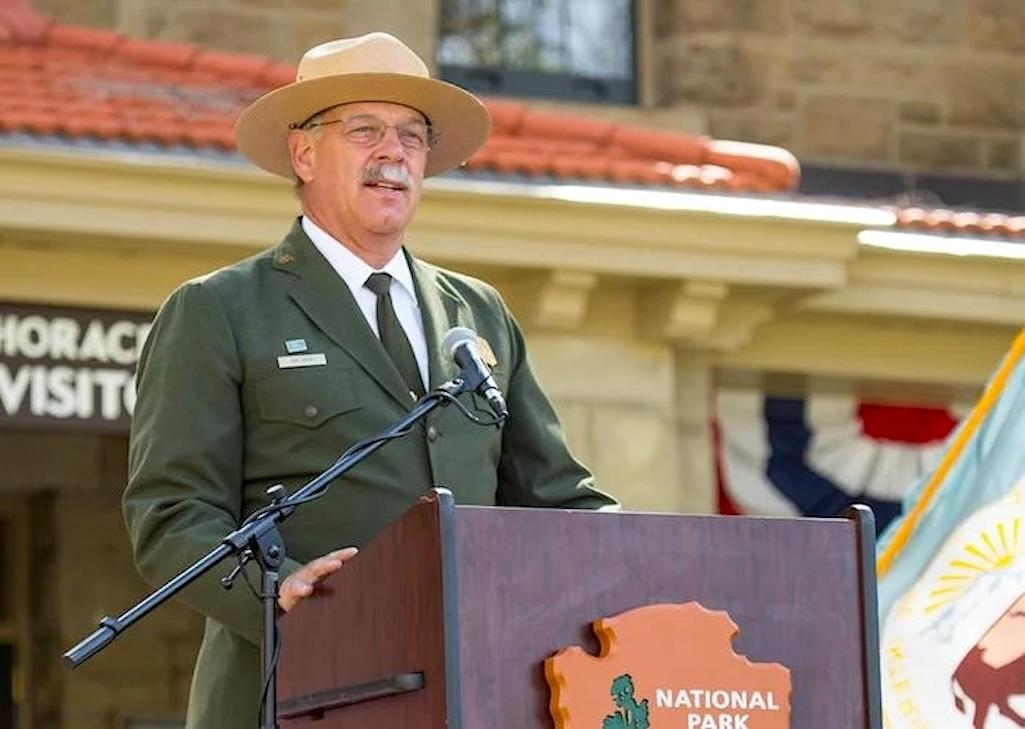
Dan Wenk, who was forced out by the first Trump administration, worries for today's National Park Service under the second Trump administration/NPS file
Dan Wenk has been there.
Seven years ago, two years into the first Trump administration, the National Park Service veteran, was forced out. While his departure from the agency wasn't as abrupt as those given on Valentine's Day to 1,000 Park Service employees and another 1,300 across the Interior Department, it stung just as much.
Wenk, who began his start as a landscape architect and over the next 43 years served as park superintendent, acting-director of the National Park Service, and interim director of the National Park Foundation, in late Spring of 2018 had announced his intention to retire in March 2019 from his post as Yellowstone's superintendent when the Trump administration told him to move across country to oversee the National Mall and Memorial Parks in Washington, D.C., or quit.
Wenk retired to South Dakota.
Last week he returned to Yellowstone for a vacation and met some of the employees fired by the Park Service.
"I stopped at Canyon and saw some employees that I knew, and I just said, 'How you doing?' And they said 'our two probation employees just got fired, and we don't know how we're going to be able to proceed'," Wenk said during a phone call from Old Faithful, where he was spending the night. "I got another message from another superintendent who just lost six probationary employees.
"... They're demoralized. They don't know what's next," he continued, saying the employees were wondering how they were "expected to keep this park open and meet the expectations of the visiting public."
Wenk had no insights into what might becoming next for the Park Service, but ventured that President Donald Trump and Elon Musk, the world's richest man overseeing the reduction of the federal workforce, were hoping to scare workers into quitting.
"I think they've had their desired effect in terms of sort of the shock and awe and make everyone believe that they should be looking for other alternatives," he said. "I think their hope is to get people to resign. 'It would be wise to take the buyout.' Those that didn't, I think they're just now waiting for the next shoe, or shoes, or the drop."
The Park Service veteran did think the president and Musk were unconcerned about the impacts of their actions.
"I don't think they are even a little bit concerned about the unintended consequences of their actions. I think their intention is to cut people, to cut dollars, and they don't care what that means to how you operate a park," he said. "They don't care yet what it means to local communities, state governments, the economies of places that surround Yellowstone. They don't care because they've not had to think about it."
That might change, Wenk continued, in late spring when Yellowstone begins to welcome the crowds that will grow through the summer months.
"They'll start to care when that affects how the park can operate," he said.
Over the decades, there have been very few superintendents who bucked Interior to raise a point. In 1993, then-Yosemite National Park Superintendent Mike Finley closed the gates to the Yosemite Valley for Memorial Day Weekend because of overcrowding.
Earlier, in the 1980s, then-Yellowstone Superintendent John Townsley, grappling with budget cuts that reduced the park's staff at the same time visitation was climbing, closed some campgrounds and delayed spring opening.
Wenk wouldn't say whether any of today's superintendents would be so bold and cut back visitor services because they don't have the necessary staff or the funds.
"I hope there are some, I really do," he said. "I couldn't tell you who I think they would be because I think it would be labeled as insubordination and they would be fired. ... I've talked to enough superintendents to just know that they're very, very concerned about how they do the job and protect the resources that they're obligated to protect and provide the visitor services. They don't know how they're going to do it."

 Support Essential Coverage of Essential Places
Support Essential Coverage of Essential Places






